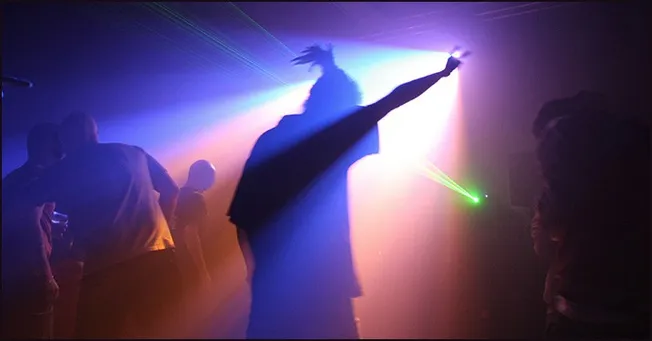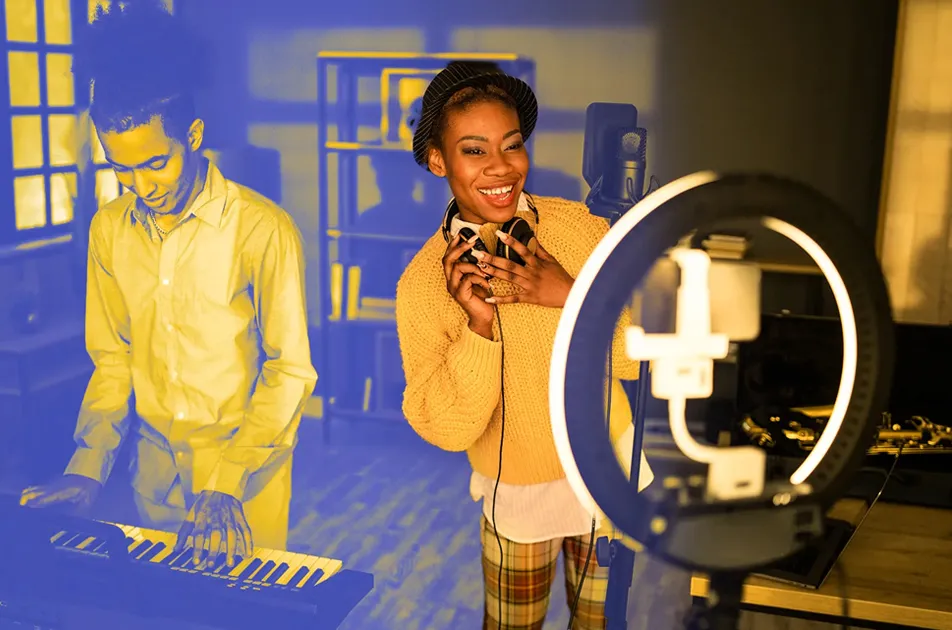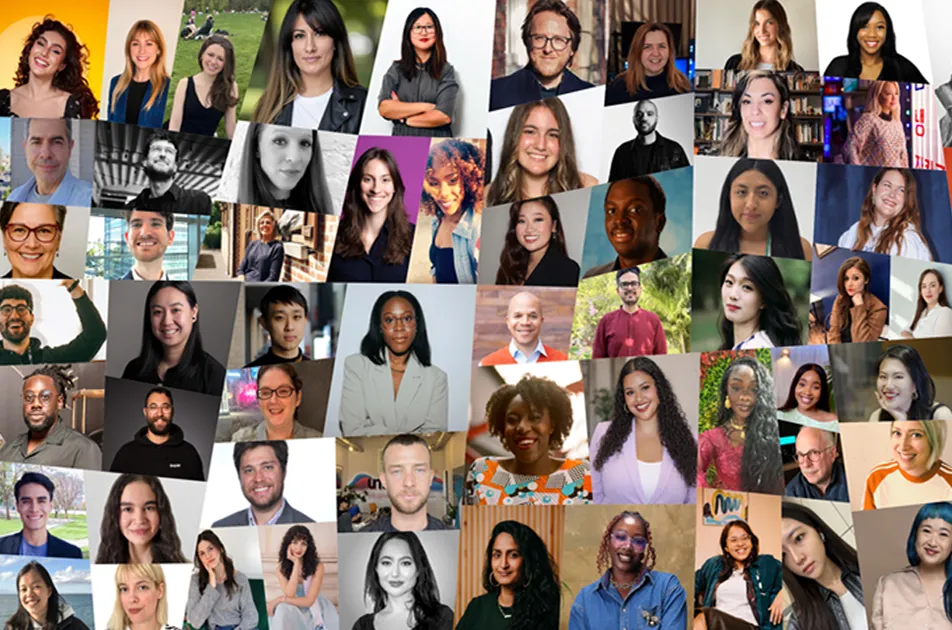Disc Makers’ Tony van Veen weighs the pros and cons of that age old music industry question: is it better to sign record deal or remain independent?
Guest post by Tony van Veen of the Disc Makers Blog
There are downsides to being an independent artist, but there are so many incredible advantages, as well. We look at the pros and cons of signing a record deal versus staying independent.
A little while ago, I got an email from an artist that went something like, “Tony! My songs are ready, I need to get in touch with an A&R rep. Can you make me any introductions?”
Now, let me start by going off on a quick rant because there’s just so much wrong with that approach. For one, you don’t know me and I don’t know you. A&R contacts are super in-demand, very busy, and they get inundated with requests to “listen to my demo.”
Part 1: Who are you?
If I knew any A&R reps, which I don’t, what makes you think I would want you to introduce you, a perfect stranger, to them? Also, what if you’re a metal artist and my fictional A&R contact is at a hip-hop label? Do you still want that intro? Do you think there is any value at all in that kind of shotgun, random intro approach that you’re asking for?
And finally, what reasons have you given me to think that it would be worth my A&R contact’s time to listen to your music? What have you accomplished as an artist? Do you have any buzz? Can you draw any fans? Do you have any social followers? Heck, you haven’t even told me your genre.
In short, you don’t know me, I don’t know you, and you’ve given me exactly zero reasons to make you that introduction. I’m getting kind of aggravated just thinking about it.
Do you dream of being a signed artist?
It’s almost 2022, and we are living in an era of independent artists where indie music is growing at more than twice the rate of the major labels. And yet, so many artists still dream of being signed by a label. You know, “once I’m signed, my success is guaranteed!” That dream.
The label deal is frequently held out as some kind of idealized scenario where you get signed and you’re on easy street. I get my contract. I get a big advance to record my album and make slick YouTube videos. I get to do just music. The label will do the work and pay to promote me and my album up the charts.
You may have dreamt about that. I remember it crossing my mind, back in the day. I was in a band, I just graduated college, I had not found my Disc Makers dream job yet, and my thought was, “Hey if we get signed now, I’m riding this all the way to the top!”
Well, I guess by now you can figure what happened with my major-label career.
Be grateful you’re independent
They were never interested. And, in my case, I’m really thankful for it because I love the career I’ve been able to build at Disc Makers for the last 30+ years. I love interacting with artists in person and through videos and blog posts like this.
And I love sharing a bit of my experience and some of my many opinions. So all of this is a really longwinded preamble to my introduction of my next video topic. It’s part of my series about the pros and cons of being an independent artist versus being signed to a major label versus being signed to an independent label. It’s fine to dream of being on a label as long as you know both the advantages and the drawbacks.
Part 2: The pros and cons of being indie
I have found that many people have a tendency to take much of the good in our lives for granted. In art, at work, in our time off, even with family, too often we focus on how green the grass is on the other side. I want to offer a balanced view of the advantages — and the drawbacks — of being an independent artist.
For starters, it’s hard work. As an independent artist, you literally are your own music business and you have to do all that comes with it. Write the songs, record your music, get the records pressed, do all the marketing, social media, the email, book your concerts, buy guitar strings, keep track of the money, etc.
Indie cons
Of course, some of that work is fun. Writing songs, rehearsing, performing, even interacting with fans on social media. But, you also have all the administrative work that comes with being your own music business, like booking recording time or rehearsal time, creating marketing content, paying your bills, doing your taxes… Much of that admin work is a drag, and it usually comes after your day job.
Another con is a lack of access. As an independent artist, you may not know anyone in the biz who can help you. You may not know anyone in radio, no label A&R reps or PR people, no lawyers or managers who can help you move your career forward. Your music career can feel like a daunting mountain to climb without an experienced, connected insider by your side.
Then, there are the time constraints. There’s so much to do as an independent artist, you’ll never feel like you’ve got enough time to do it all. And I’m not just talking about the music part or even the music business part. I’m talking about the rest-of-your-life part: the day job, because you do have to pay for those drum sticks and guitar strings. Plus, there’s family, friends, other interests, and down time.
And then there is the one challenge that every independent artist has: budget constraints. I don’t need to tell you that, as a typical independent artist, the full financial burden is on you. And you quickly feel that you can never spend as much as you want or need to spend.
Indie pros
Now, let’s talk about the pros of being and staying an independent artist. First, all the money goes to you. Gig revenue, product and merch sales revenue, streaming revenue, sync revenue, publishing revenue — 100 percent of it comes to you. You still have expenses, but at least no label or manager is grabbing a share of the financial reward of your creative output.
You also get to completely control your creative output. There’s no label to tell you, “This is not a hit. Keep writing.” Whatever you want to put out, you can put out whenever you’re ready.
You also control all your rights to the sound recording and to the publishing if you’re a songwriter. Those rights will result in royalties when your music is streamed, sold, performed live, played on Internet or terrestrial radio, or licensed for TV or film. And the fact that you own all those rights could give you some leverage in a potential future label negotiation.
Next up, today’s artists have unprecedented direct access to markets. Right now, technology lets you affordably get in front of billions of potential fans for free. You can get in front of billions of YouTube viewers and potential fans on Facebook, Instagram, or TikTok. And for under $50, your album can be on Spotify and Apple Music and every other streaming platform worldwide. Artists from a decade or two ago would have killed to be able to get in front of so many potential fans.
And technology has made much of what you need as an artist more affordable than ever. So much promotion on social media and email can be done virtually for free. Digital recording and mastering and cover design cost a fraction of what they cost some years ago.
Indie music resources
And there are so many more resources available than ever for today’s artist. True, you may not have inside access into somebody in the music industry, but events like the CD Baby DIY Musician Conference and the TAXI Road Rally allow you to meet and network with some of those industry folks, as well as with a ton of like-minded artists where you can exchange tips and learn best practices.
There are also lots of online guides and directories like the Indie Bible and websites and YouTube channels that can help you market your music, get playlist placements, and learn about the industry.
As an independent artist, you also get to set your own schedule. If you want to write, write. Don’t want to write? Don’t write. You’re independent. It’s only the voice inside your head that tells you what to do.
And finally, as an independent artist, you make all the decisions. Yes, you do all the work, but you also get to decide what to work on, when to work, how to work, how hard to work, where to work, who to work with. You get to decide how much money to spend or how little to spend and on what. And you get to decide whether you need more cowbell. You catch my drift, right?
What’s right for you?
There are downsides to being an independent artist, but there are so many incredible advantages, as well. The independence and control you have today is something to not just appreciate, but to celebrate. I’ve spoken to many frustrated label artists who wished they could just control their own creative output. Well, you definitely can. There’s no one to tell you what you can and can’t do.
Did I miss any pros and cons to being an independent artist? If I did, please add a comment below and let me know. I’d love to read it.
Watch more great videos on the Disc Makers YouTube channel.
Tony van Veen is the CEO of DIY Media Group, the parent company of Disc Makers and BookBaby. As a college student, he played in indie bands, created his own LPs, cassettes, and t-shirts, and sold them at shows. Today, he collects CDs, vinyl LPs, and concert t-shirts to support the artists he loves.





